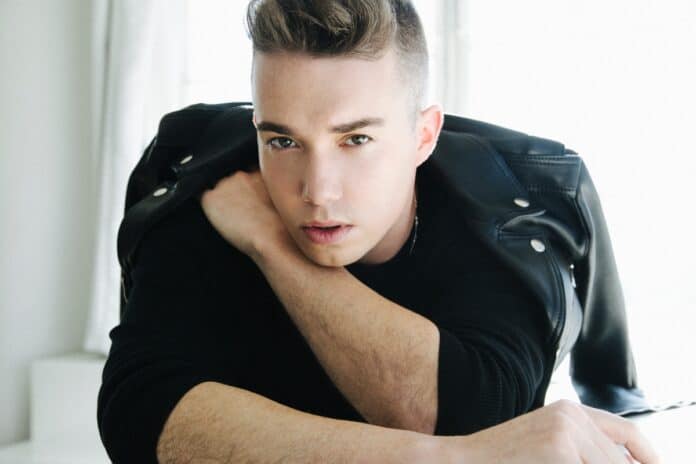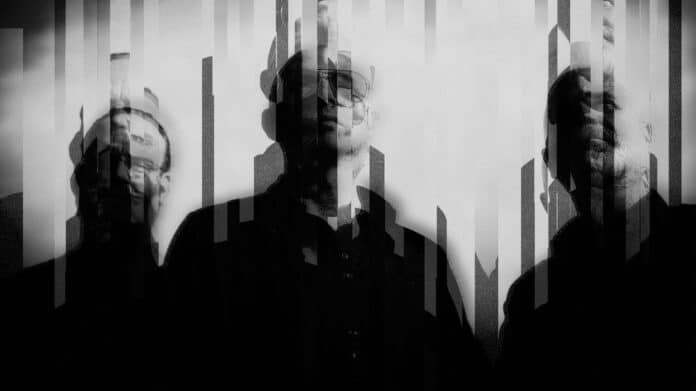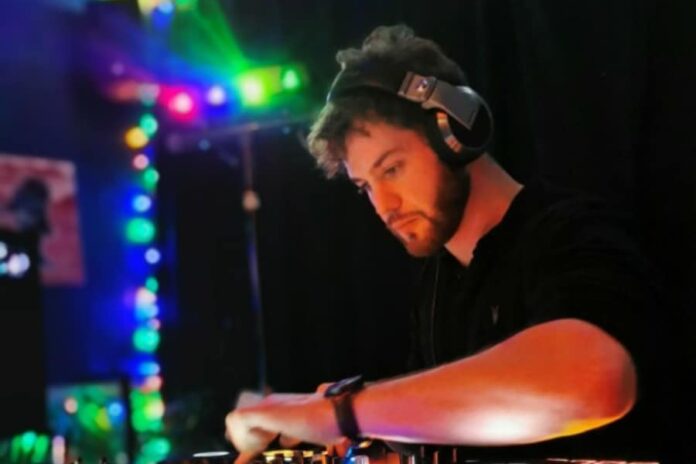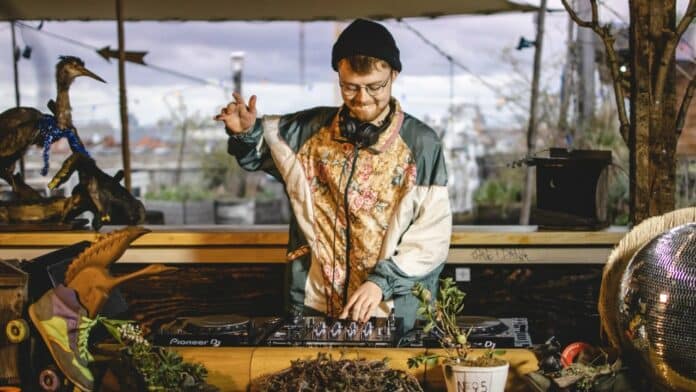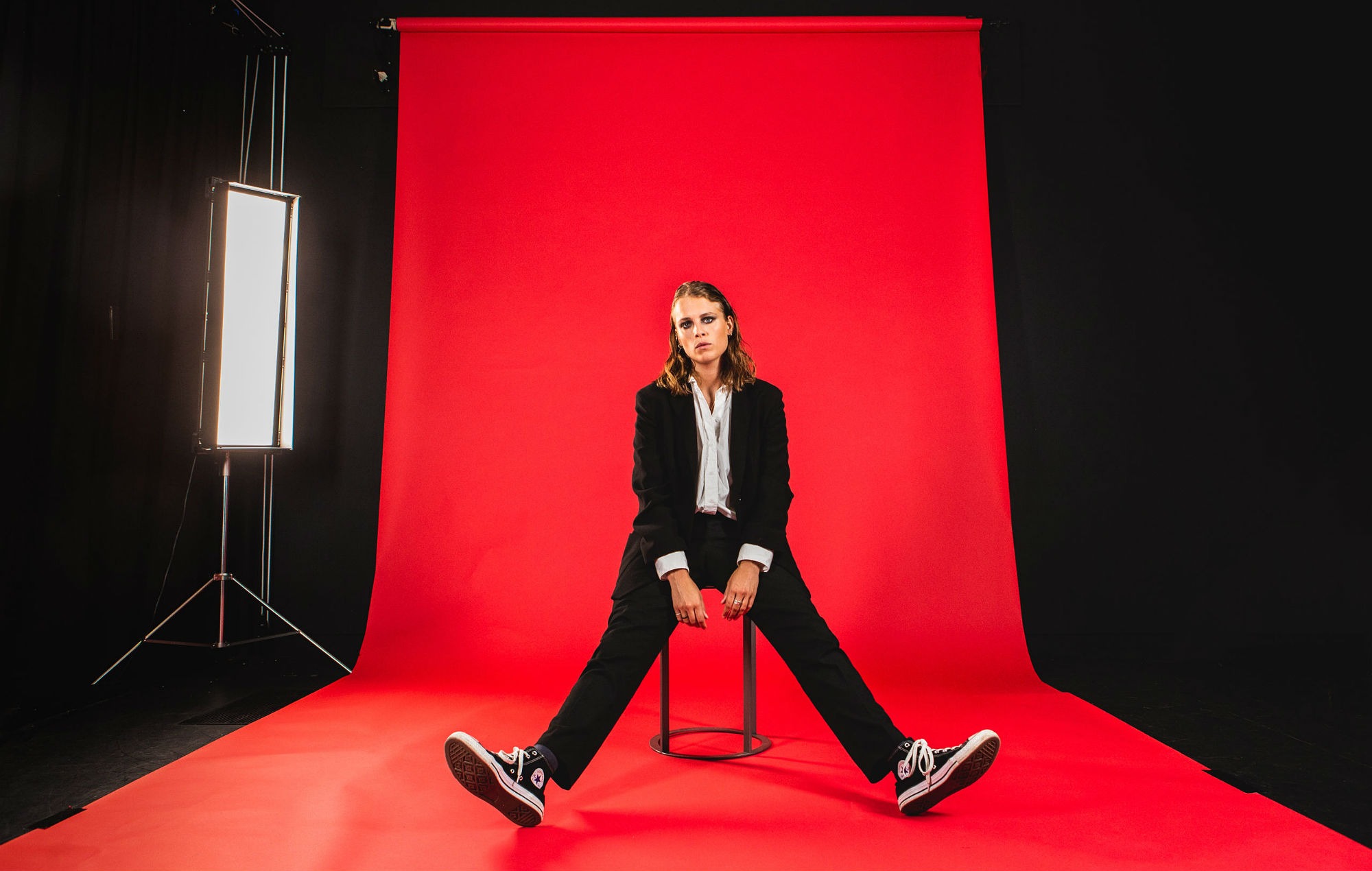
Marika Hackman on her “dark” new covers album, and living at her parents’ through lockdown
While we’ve been doom-scrolling for pandemic and US election updates over the last months, Marika Hackman has taken advantage of the time afforded to her during lockdown to record a new album. The London singer-songwriter has chosen some of her favourite songs – from Grimes to Sharon Van Etten, and The Shins to Beyoncé – and has indelibly stamped her style on them. The result is a brilliantly self-produced album conceived and recorded behind doors: a close-quartered and at times uneasy listen, that both speaks to and provides an odd comfort for the current times.
NME caught up with the Hackman to find out how the dark ‘Covers’ came together while decamped to her parents’ home in Devon. The situation brought new production challenges that were off set, of course, by binging reality TV (“I’ve watched so much Below Deck”).
Hello Marika. Why did you decide to make a covers album?
Marika: “I’ve always really enjoyed doing covers. It’s a good way to learn new techniques and be creative. I wanted to spend the majority of lockdown writing my fourth album, but I found it very hard to be creative in that way: to start with a blank page and make something out of nothing. A lot of musicians and creatives I’ve spoken to have found it to be a really uninspiring time. The world has sort of paused and there isn’t anything around that you can cling on to, to find exciting, to fuel some artistic drive. So I still wanted to be creative and productive because I find sitting around twiddling my thumbs to be really bad for my brain. It just felt like a very easy, natural thing to choose to do that was born out of creative frustration.”
Why did you choose these songs in particular?
“They’re just songs that I really like. There’d be no point in doing a cover if it wasn’t something that I really loved because I think it’d be so hard to get inside the song. When you’ve really lived it it becomes almost second nature, rather than having to look at it in a really mathematical, cynical way. A record needs to have corners or ups and downs. So for instance, for the Radiohead cover [‘You Never Wash Up After Yourself’], I wanted to do something that was the doorway into the record that set the tone. I also wanted to do something choral, and it was the perfect one for that. I already had Beyoncé [‘All Night’] and was already working on Grimes [‘Realiti’].”
Are the lyrics of the the covers important to you?
“I don’t know if they factored in my decisions in an upfront way, but of course the lyrics of a song will be part of the reason why I love it. It was funny, actually, I was listening back through the album once it’d come together and I realised there’s a real tone to the whole record. That was completely unintentional, but it does really sound of its time in the sense that it feels very bleak and isolated. And the lyrics – even if they’re just talking about love or relationships – you can almost put them into the situation we’re all in and it still works.”
What else do you think influenced the album’s overall darker tone?
“Maybe it was being back in my parents’ house, which is where I wrote a lot of my older songs that were certainly darker, and listening to a lot of these artists that informed it too. I do like a darker, intimate tone and I haven’t really done it for a while. I listened to The Shins loads when I was a teenager so I guess it feeds into each other. I also think having a very limited sonic palette impacted it as well – knowing that I wasn’t going to get in the studio and I wasn’t going to put live drums on it. The vocals were going to have to be raw and intimate because there were other people in the house, and other noises. So those limitations and parameters kind of provide you the structure already, which is great.”
The Shins song you covered, ‘Phantom Limb’, is a queer song. Did you choose it partly for that reason?
“I found that out whilst I was looking up the lyrics. It’s so weird because I used to listen to that song on repeat when I was a closeted 14-year-old. I had this real affinity with it and yet I never understood what it was about. It turns out it’s about a secret lesbian romance at a high school. I was like, ‘What!’ Of all The Shins songs…’ I was sitting there agonising over which one to pick and I managed to pick that one. Once I really dug around it I was like, ‘Oh fuck, this so much more pertinent than I thought it was’.”
Have you had any responses to your renditions from the original artists?
“Yeah, MUNA were very complimentary about my cover after I sent it to them, which is good. You don’t want to fuck off a friend – especially talented friends as well.”
Did you attempt some other covers that just didn’t quite work?
“I did. I have ‘Here Comes Your Man’ by Pixies on the shelf, which I want to have another go at at some point, maybe when I’m older. There’s something about the idea of me as a woman and as a queer women singing the lyric, ‘Here comes your man’, in a kind of lackadaisical style that just really appeals to me.”
What’s your favourite cover of all time?
“Nico’s ‘These Days’. I find it to be way more emotional than the Jackson Browne original. The way she sings it…I mean, it’s iconic and it’s just more famous, isn’t it? Her voice is so haunting and strange on it. It’s a great song.”

You’ve been trying to write your fourth album. Where are you at with it currently?
“I’m trying to, but I’m being kind to myself. I don’t feel like I’ve got back into a groove yet, but I’ve got ideas flying around and I’ve got fragments. From my experience, I get the fragments for a while and it starts to get very frustrating, then something clicks and suddenly ideas start coming like once every three weeks. Then you have to sit down and work at it. So I’m hoping that something hasn’t changed irreparably in that I won’t be able to write another song. But at the moment there’s one or two songs in there. I really do want to crack on with it because I find the whole process very exciting. While I’m not even able to have a sniff at touring or playing shows, I’d really like to kind of use this time to properly get on with it.”
Can you give us any hints at what direction you might be going in?
“It’s very hard to tell right now. I do think I want to revisit that earlier style – the melancholy – and maybe the more abstract, but I think with everything I’ve learned in between, you know? So kind of making that early Marika Hackman record but now with so much of a stronger understanding about songwriting, structure and production. I’ve flexed so many different creative muscles over the last three records and the EPs before that. It’d be kind of fun to see what would happen if I stopped trying to flex and sat down like I did when I was a teenager.”
Marika Hackman’s ‘Covers’ is released on November 13

